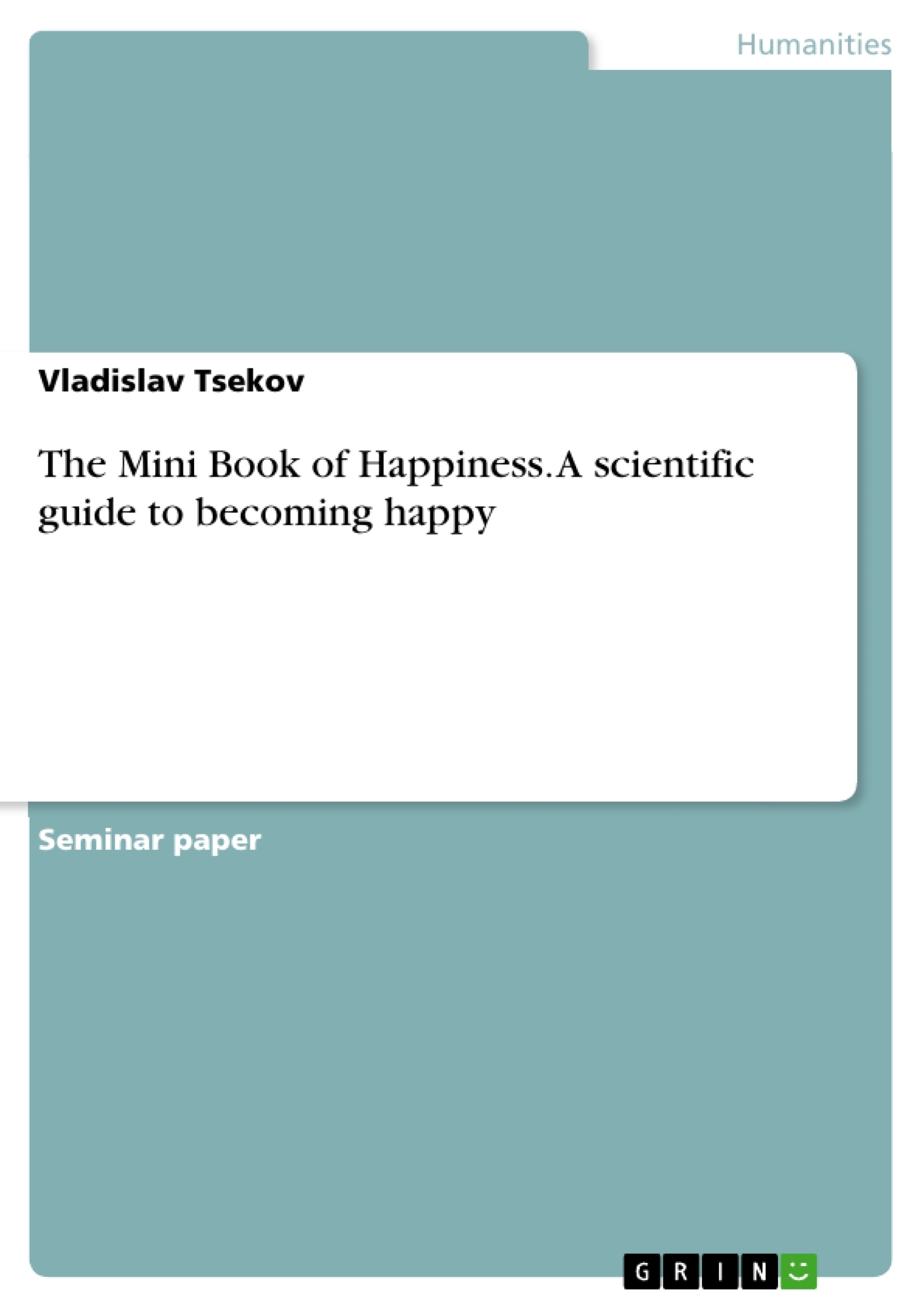We want to be happy, but what exactly does this mean? Is happiness an emotion, or a way of life; is it temporary, or constant; is it something that depends on you, or on your surroundings? A specific branch in psychology, positive psychology, has embarked on a journey to find the answers to those and similar questions.
Everybody wants to be happy. You, me, your best friend, your family. Even your boss. Happiness is such a lucrative incentive that it motivates people to do the craziest things: swimming with sharks, jumping from airplanes, dieting, training, and even working from 9 to 5 for their entire life.
Since happiness plays such an important part in our life, we ought to know what it is and where we can easily find it, right? Wrong! This is a challenging task, resulting in years of wrong decisions and frustrating activities. You set yourself a goal to become a lawyer and earn a lot of money. You invest hundreds of hours into studying and practice, spend thousands of dollars on education until you finally get into court and realize that this isn’t what you wanted at all. The problem is that we live in a society which is lacking introspection and self-knowledge. In most cases, our parents, teachers and friends tell us what is right for us. They fool us into thinking that we have to strive for certain things in order to be happy. Because we never question authority and we comply gently with societal pressure, we end up with a major depression at the age of 30. So the next time you find yourself doing things other people have told you to do, stop and think for a second if this is really what you want to do.
Table of Contents
- Introduction
- What is happiness?
- How happy are you?
- How to become happy.
- Final words.
Objectives and Key Themes
This book aims to provide a scientific guide to understanding and achieving happiness. It explores the nature of happiness, how to measure it, and practical steps to increase personal well-being.
- The definition of happiness and subjective well-being
- The different components of happiness, including pleasure, engagement, and meaning
- The role of self-knowledge and introspection in achieving happiness
- The importance of positive emotions and a sense of life satisfaction
- Practical strategies for increasing happiness and well-being
Chapter Summaries
Chapter 1: Introduction
This chapter introduces the concept of happiness as a universal human desire and explores the motivations that drive people to seek it. It highlights the importance of self-knowledge and introspection in achieving genuine happiness.
Chapter 2: What is happiness?
This chapter delves into the scientific understanding of happiness, drawing from the field of positive psychology. It explores different definitions of happiness, including subjective well-being and the three components of pleasure, engagement, and meaning.
Chapter 3: How happy are you?
This chapter presents a practical method for assessing personal happiness levels using the "Satisfaction with Life Scale." It provides a scoring system and encourages readers to evaluate their own happiness.
Keywords
Happiness, subjective well-being, positive psychology, pleasure, engagement, meaning, self-knowledge, introspection, life satisfaction, positive emotions, well-being.
Frequently Asked Questions
What is "Positive Psychology"?
Positive psychology is a scientific branch of psychology focused on understanding happiness, well-being, and what makes life worth living.
What are the three components of happiness according to the text?
Scientific definitions often divide happiness into pleasure (positive emotions), engagement (flow), and meaning (serving something larger than oneself).
Why is self-knowledge important for being happy?
Without introspection, people often follow societal pressures or the advice of others, leading to wrong decisions and potential depression instead of genuine satisfaction.
How can I measure my own level of happiness?
The book suggests using the "Satisfaction with Life Scale," a practical scoring system to assess personal well-being.
Does money make you happy according to the abstract?
The text warns that striving for goals like "earning a lot of money" without self-knowledge often leads to realizing it wasn't what was truly desired for happiness.
- Arbeit zitieren
- Vladislav Tsekov (Autor:in), 2015, The Mini Book of Happiness. A scientific guide to becoming happy, München, GRIN Verlag, https://www.grin.com/document/356401



